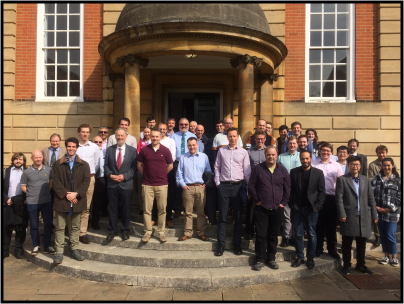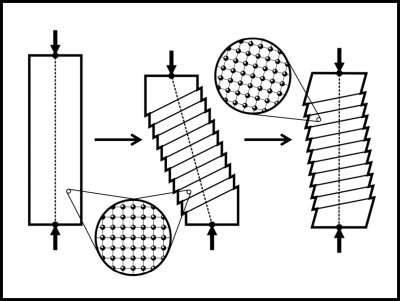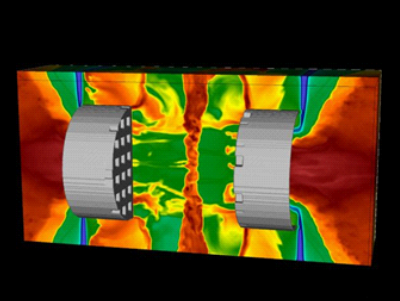The OxCHEDS Annual Meeting was held on the 21-22 March 2022 at Lady Margaret Hall (LMH), University of Oxford, attracting a record 52 registrants for the second year running.

The meeting was opened by OxCHEDS Director, Professor Justin Wark, who welcomed everyone to the first face-to-face event in three years. Thanks were also given to Paddy Heighway, OxCHEDS coordinator, for the meeting's organisation, and to Gianluca Gregori, who generously offered to host at Lady Margaret Hall (the traditional venue of Trinity College not being an option this year due to ongoing construction at its conference facilities!).
The event attracted equal numbers from AWE and Oxford with 26 AWE staff present, who had the opportunity to stay overnight in LMH accommodation. The meeting featured a range of talks from students, senior academics, and AWE staff, covering a gamut of high-energy-density science. Though Covid still made its presence felt, with several students and academics having to cancel last-minute, the meeting pressed on, and provided plenty of opportunity for discussions that have been difficult to come by over the last couple of years.

There were a number of talks on material strength, with Justin Wark presenting an interesting overview and highlighting the differences between laboratory experimental conditions and those found in planetary cores; this was followed by Oxford's Paddy Heighway and AWE's David McGonegle discussing dynamic uniaxial compression experiments and molecular dynamics simulations, respectively.
Gianluca Gregori gave an excellent presentation on recent experiments at the National Ignition Facility and the Omega Laser Facility demonstrating strong suppression of thermal conduction in turbulent magnetised plasmas relevant to galaxy clusters (read the HEDLine here). On a related theme, Hannah Poole presented an optical phonon correlation spectroscopy methodology for characterising turbulent plasmas. Other talks from students included Georgios Vacalis with 'Production of and detection of gravitational waves using high-intensity lasers'; Thomas Campbell's 'Results of an ion diffusive acceleration experiment at GSI'; and Robert Paddock's 'Measuring the equation of state of fusion-relevant foams'. Oxford's Sam Vinko and AWE's Robin Williams concluded the meeting with talks on density functional theory.

The scope of this year's meeting was also broadened to include the research of Professor Dan Eakins from Oxford's Department of Engineering Science and AWE's Glenn Whiteman. They presented talks on dynamic impact studies largely using gas guns, which provide information complementary to those conducted with nanosecond laser ablation techniques. In addition to the technical talks, AWE's Norman Godfrey, Deputy Chief Scientist and Corporate Outreach Coordinator, was invited to present an overview of AWE's outreach and academia programme.
Justin Wark said after the meeting "It was a real pleasure for all concerned to meet in person again for this OxCHEDS meeting. Whilst excellent collaborative work has been performed over the past two years, there is no substitute for face-to-face interactions and discussions. So much is gleaned from the informal discussions over coffee and dinner, both intellectually and in the building of good working relationships, and Zoom meetings are a poor substitute. It is heartening to see how much progress is being made in the field, and we in Oxford are very grateful to AWE for their ongoing support of our academic endeavours".
The meeting and venue were a great success with superb hospitality and fruitful discussions. All who attended are looking forward to strengthened collaboration over the coming year, and the next meeting in Spring 2023, which will mark the 10th anniversary of OxCHEDS.
